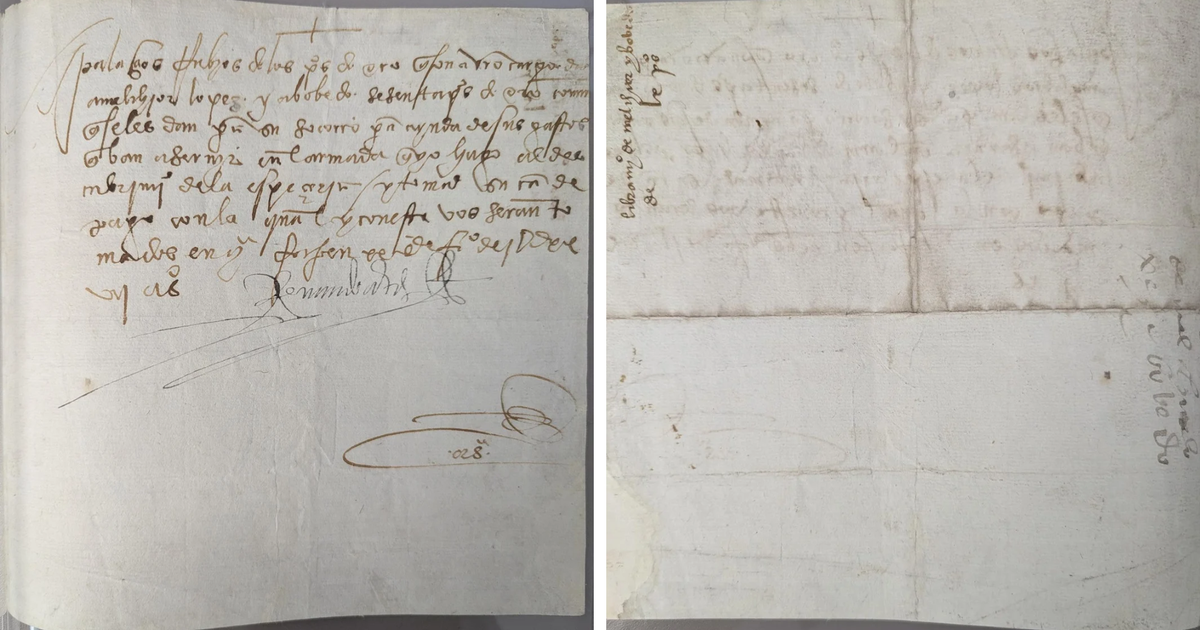

No response returned

Federal authorities say they've returned a lost page from a 500-year-old manuscript to Mexico, decades after portions of it went missing. Dating back to the 16th century, the document describes an early payment structure established by the Spanish military commander who conquered parts of modern-day Latin America, to the FBI.
"This is an original manuscript page that was actually signed by Hernán Cortés on February 20, 1527," said FBI special agent Jessica Dittmer, a member of the bureau's art crime team, in a statement. The page "outlines the payment of pesos of common gold for expenses in preparation for discovery of the spice lands, so it really gives a lot of flavor as to the planning and preparation for unchartered territory back then," Dittmer said.
Cortés was known for his takeover of the Aztec empire, which ruled over what is now Mexico, during the early 1500s. He claimed the region for his native Spain, in a conquest that historians say laid the foundation for an ensuing colonial territory called "New Spain," encompassing vast sections of contemporary Mexico, Central America and the United States, in addition to places in the Caribbean and the Pacific.
According to Dittmer, the manuscript that Cortés signed holds historical significance because it includes a detailed account of the conqueror's journey from Europe to the Americas.
"Pieces like this are considered protected cultural property and represent valuable moments in Mexico's history, so this is something that the Mexicans have in their archives for the purpose of understanding history better," the agent said.
The manuscript was initially repatriated to Mexico and held at the country's national archives, where archivists in 1993 discovered that 15 pages of it had disappeared, the FBI said. Decades later, in 2024, the Mexican government requested assistance from the bureau's art crime team in recovering one specific page from the lost group.
Working with authorities in Atlanta and New York, federal investigators eventually found and seized the missing page, from a location within the U.S. that they haven't disclosed. The FBI said that the page was likely stolen from Mexico's national archives at some point between 1985 and 1993, based on the filing system that archivists used in that time frame. Federal officials returned the document to Mexico on Wednesday.
Authorities will not prosecute anyone in connection with the theft because investigators determined that the documents "changed hands several times over" since it went missing, the FBI said.
"We know how important it is for the United States to stay ahead of this, to support our foreign partners, and to try and make an impact as it relates to the trafficking of these artistic works and antiquities," said Veh Bezdikian, a supervisory special FBI agent, in a statement.





